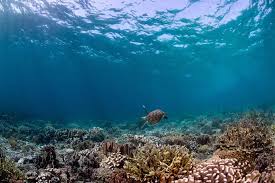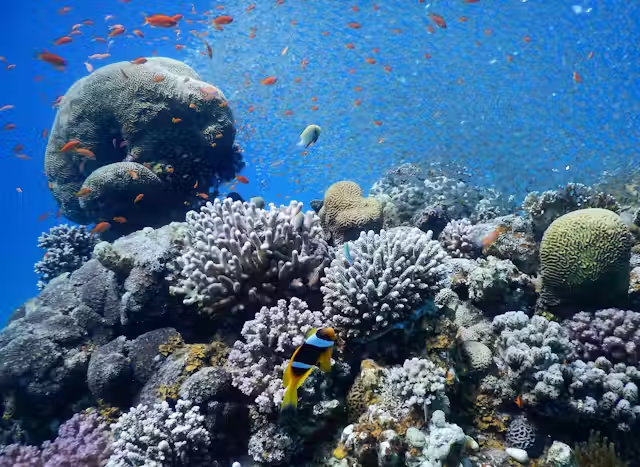Coral reefs are breathtaking ecosystems that not only dazzle with their beauty but also sustain marine biodiversity. However, their survival depends heavily on a factor often overlooked: proper nutrition. Ensuring reefs receive the nutrients they need is pivotal for their health and resilience, particularly as they face increasing threats from climate change and human activities.
Why Reef Nutrition Matters
Reef ecosystems thrive on a delicate balance of nutrients. Corals, the architects of these ecosystems, rely on a symbiotic relationship with microscopic algae called zooxanthellae. These algae live within coral tissues, providing them with energy through photosynthesis. In return, corals supply the algae with essential nutrients. This interdependence ensures the vibrant colors and productivity of reef systems.
However, this balance can be disrupted when the water is either too nutrient-rich or nutrient-poor. Excess nutrients from agricultural runoff and urban wastewater often lead to algal blooms, suffocating reefs and reducing oxygen levels. On the flip side, insufficient nutrients can starve reefs, weakening their structure and making them more susceptible to diseases.

Key Components of Reef Nutrition
- Nitrogen and Phosphorus:
These macronutrients are critical for algae photosynthesis. While necessary, their levels must be carefully regulated to avoid harmful algal overgrowth. - Calcium Carbonate:
Corals use calcium carbonate to build their skeletons, forming the structural foundation of reefs. A lack of calcium in the water can hinder coral growth and repair. - Trace Elements:
Elements like iron, zinc, and manganese, though required in small amounts, play vital roles in coral health and resilience. These micronutrients support enzyme activity and metabolic processes in both corals and their symbiotic algae. - Organic Matter:
Naturally occurring organic compounds provide energy and nutrients for reef organisms. They also contribute to the formation of detritus, which sustains diverse marine life.

Human Impact on Reef Nutrition
Human activities have significantly altered the natural nutrient dynamics of reefs. Coastal development, overfishing, and pollution disrupt the nutrient cycles essential for reef ecosystems. For instance, overfishing removes herbivorous fish that help control algae, allowing it to overtake corals.
Climate change further exacerbates the problem. Rising sea temperatures cause coral bleaching, where stressed corals expel their symbiotic algae. Without these algae, corals lose their primary source of nutrition, becoming more vulnerable to starvation and death.
Sustainable Practices to Enhance Reef Nutrition
- Nutrient Management:
Reducing agricultural runoff and improving wastewater treatment can limit nutrient pollution in reef areas. Governments and organizations can also implement stricter regulations to control industrial discharges. - Reef Restoration Projects:
Artificial reefs and coral nurseries provide a controlled environment for coral growth, ensuring optimal nutrient levels. These projects also help repopulate damaged reefs. - Promoting Marine Protected Areas (MPAs):
MPAs protect critical reef habitats from destructive human activities, allowing natural nutrient cycles to recover. - Advancing Research on Coral Feeding:
Studies on supplemental feeding for corals, such as plankton and nutrient-enriched solutions, have shown promise in improving coral health and growth.
Role of Individuals in Reef Conservation
Everyone can play a role in preserving reef ecosystems. From reducing carbon footprints to supporting sustainable seafood choices, small actions can collectively make a big difference. Tourists visiting reefs should follow guidelines to avoid touching or damaging corals and ensure that sunscreens used are reef-safe.
The Future of Reef Nutrition
Innovations in reef restoration and conservation are offering hope for these fragile ecosystems. Breakthroughs in marine biotechnology are enabling scientists to engineer more resilient coral species capable of withstanding environmental stressors.
Additionally, efforts to integrate local communities into reef conservation programs have proven successful. Empowering these communities with knowledge and resources ensures the sustainability of both their livelihoods and the reefs they depend on.

Conclusion
Reef nutrition is a cornerstone of marine ecosystem health. By understanding and addressing the factors affecting nutrient balance, we can protect these underwater treasures for future generations. With collaborative global efforts, a future where reefs continue to flourish is within reach.
For more information on reef nutrition and conservation initiatives, visit Reef Conservation Network or Marine Protect.













